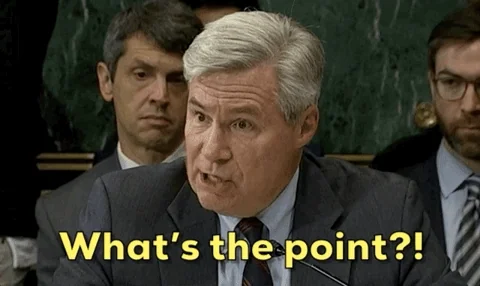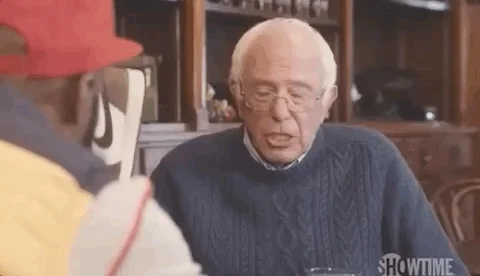Originally published at: https://boingboing.net/2023/06/06/new-psychedelic-inspired-drugs-could-lift-depression-without-making-you-trip.html
…
I get Ketamine every week for depression. I’ve been doing it for years. But, the psychedelic trip is one of the best parts. I get to trip one day a week in a safe place, and it’s great.

JK, of course… if people want to help without the trip, and they can do that, that’s awesome.

I’ll take my anti-depressants with the trip!
More seriously, I hope this research does work out for people who have issues preventing them from using psychedelics.
I would first and foremost want to remove any barriers for people suffering depression from receiving the best, most effective treatment that they can. If removing the trip does that, so be it.
On the other hand, medical marijuana laws were such an effective breaker of the puritan bullshit that kept weed illegal and stacked our jails full of people who were just trying to relax and enjoy themselves. It would suck if this was a way to avoid de-scheduling more recreational drugs by interrupting the medical-use-to-recreational-acceptance pipeline.
I’m deeply skeptical of psychedelic-derived drugs that try to eliminate the actual psychedelic experience. Much of the research so far indicates that the psychedelic experience itself plays a significant role in the favorable outcomes for anxiety, depression, and PTSD.
I know that drug companies (and some mental health practitioners), would LOVE to remove the psychedelic elements because it allows them to continue to use the existing, super profitable, ongoing treatment and maintenance approach. I fear that we’ll end up with subpar drugs that are more costly and less effective over time, simply because people can make more money off of it.
On the other side, I think non-psychedelic treatments could potentially offer relief for people with adverse indications, such as schizophrenia and related disorders. Additionally, there are a lot of people who could benefit from psychedelics that are turned off by the, ‘getting high’ part.
You are quite right about the psychedelic experience being a part of the treatment. My psychiatrist encourages the trip, he has even pointed me to special psychedelic music to listen to during the treatment. The music was created to work with the drugs and increase the experience.
During the treatment, as I’m taking the doses, he asks about the level of the trip to get the proper dosage. Then after every treatment they ask how the trip was. The experience is definitely part of the treatment.
More actual research will be awesome. My niece has worked in one of the ayhuasca places in Central America where they promise a revelatory trip. She says it’s just like the esposés say; greedy, exploitive and abusive. She found it depressing the way they overpromised that it would help their depression and addictions when the way they were going about it was going to do no such thing. She quit shortly.
They want the choice to deny any patients the choice to trip.
How DARE people have fun while trying to not be depressed.
Also, crucially, because it allows them to create “novel formulations” and patent them. A drug company would have a harder time getting a patent on a recreational drug, I assume.
What fun is that?
This bodes poorly for psychedelic legalization
The paper is open access
https://www.nature.com/articles/s41593-023-01316-5
Recent clinical studies suggesting that psychedelics produce rapid and long-lasting antidepressant effects2 have received tremendous attention. Mystical experiences induced by psychedelics have been associated with their clinical efficacy37. However, the hallucinogenic effects of psychedelics limit their widespread clinical application, as their administration is restricted to clinical settings that often require intensive monitoring4,38. A number of recent observations suggest that the antidepressant and plasticity-promoting effects of psychedelics may be dissociable from their hallucinogenic effects. First, plasticity-like effects of psilocybin are not blocked by the 5-HT2A antagonist ketanserin in mice8,9, while it blocks the head-twitch response, a 5-HT2A-mediated behavior in rodents used as a proxy for hallucinogenic action of psychedelics in humans32. Second, derivatives of psychedelic compounds have recently been introduced that promote plasticity and antidepressant-like behavior but do not seem to produce head-twitch responses7,39,40. However, detailed information concerning the sites that mediate these differential actions have remained unclear.
The late, great Dale Pendell used to say he was shy of the whole “entheogens” MAPS CSP trip because the whole thing smacked too much of trying to get daddy’s permission - to demonstrate that there really were “responsible” and “therapeutic” applications for the compounds, that the experience itself is “legitimate” by virtue of its parallels to sanctioned religious traditions. For him, part of the whole matrix of the phenomenon was its transgressive aspect.
I think we should probably take that seriously and ask ourselves what the world of psychedelics will look like, once the medical institution and big pharma get their hands on it. My guess is it’ll be a bit like comparing the internet circa 1998 to the internet today - colonized by big for-profit players in ways that will fundamentally degrade the entire enterprise, and cheapened to a degree that is hard to imagine in advance.
FWIW I also agree with the several commenters who have insisted in various degrees that the trip is an essential part of what helps people, and I am profoundly skeptical that there is simply some sort of novel antidepressent lurking in the complicated molecular geometry of the classical serotonergic psychedelics. Especially on the basis of mouse studies, for heaven’s sake. When you extrapolate from mice to human beings, then your findings are relevant only with respect to whatever is common between human beings and mice.
I am wary of this apparent quest to find a pharmaceutical treatment for mental health problems that negates the need for psychotherapy, and I think removing the trip from psychedelic treatment is a means to the end of removing the need for any kind of talking therapy.
Sure, it could be revolutionary for the people who really are just unlucky enough to have some kind of chemical problem with the wiring of their brain, where there’s no amount of trauma that can be worked through to improve their lives.
Most of us though, when we’re in mental distress, there’s a reason buried in there somewhere, and that reason doesn’t get fixed with mood altering pills.
However, with regards to the potential of psylocibin without the trip, I’m not so skeptical. In my entirely subjective, anecdotal and largely irrelevant experience, a sub-hallucinogenic dose of psilocybin can be extremely pleasant indeed. We’re not talking microdosing here, I’m talking about enough to definitely feel you’ve dropped something, but not enough to embark on anything you would describe as tripping.
That’s maybe harder to achieve with the larger, more potent mushrooms you find elsewhere in the world, and certainly harder with psilocybin extract, but with those friendly little liberty caps we get here, a little handful can be a very nice social drug, not unlike very mild MDMA, or what I remember weed doing to me many, many years ago before my relationship with it soured.
Again, totally subjective, your experience may vary, set and setting etc, but the idea that psilocybin has benefits that can be separated from the trip does make a lot of sense to me.
Speaking as someone whose continued survival probably breaks down to 80% medication and 20% therapy, let me offer a counterargument.
Sure, most insurance companies would prefer to cover a co-pay for medication than many visits to a psychotherapist, but the more practical problem for the patient is that they are often in such distress by the time they start treatment that talking therapy on its own would be like trying to force someone with a severe musculoskeletal injury to start physical therapy before setting the bones and stopping the bleeding. It’s not going to go well. Patients need to have some kind of stability, even if not perfect, before they have any chance of engaging in successful talk therapy. That’s where medication comes in for most people.
And for some people, like me, the biology far outweighs any buried reasons.
I agree wholeheartedly, I’m absolutely not opposed to pharmaceutical treatment or management of mental health issues, in fact it utterly enrages me when uninformed people cause harm by spreading fear or shame about using medication.
My concern is really only for the pharmacisation (is that a word?) of mental health at the expense of a therapeutic approach. That’s coming from a UK perspective, where we (kind of almost just about still) have socialised healthcare, but where access to mental health services has been pretty piss poor for most people, even when the NHS was in a healthier state.
I can envisage a situation where health policymakers here look at a new generation of miracle happy pills, and see it as a far more attractive prospect than investing in making sure more people have access to actual human care. Or, you know, actually fixing the socio-economic circumstances that are causing our mental health crisis to start with.
I fear that whether or not the trip is essential (almost certainly) will have little bearing on what researchers determine. It’s a profit-driven system that glorifies positive results. I’m sure they’ll find some tiny benefit for trip-free psylocybin and not speak of what is lost. The existence and “availability” of this new, worse, profitable compound will be used to justify harsher prohibition.
This topic was automatically closed after 5 days. New replies are no longer allowed.